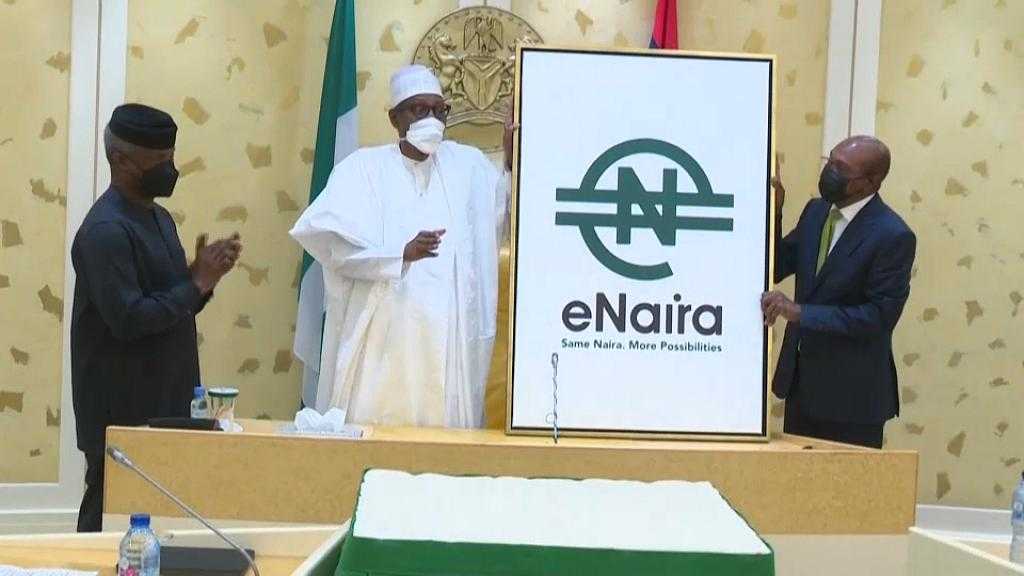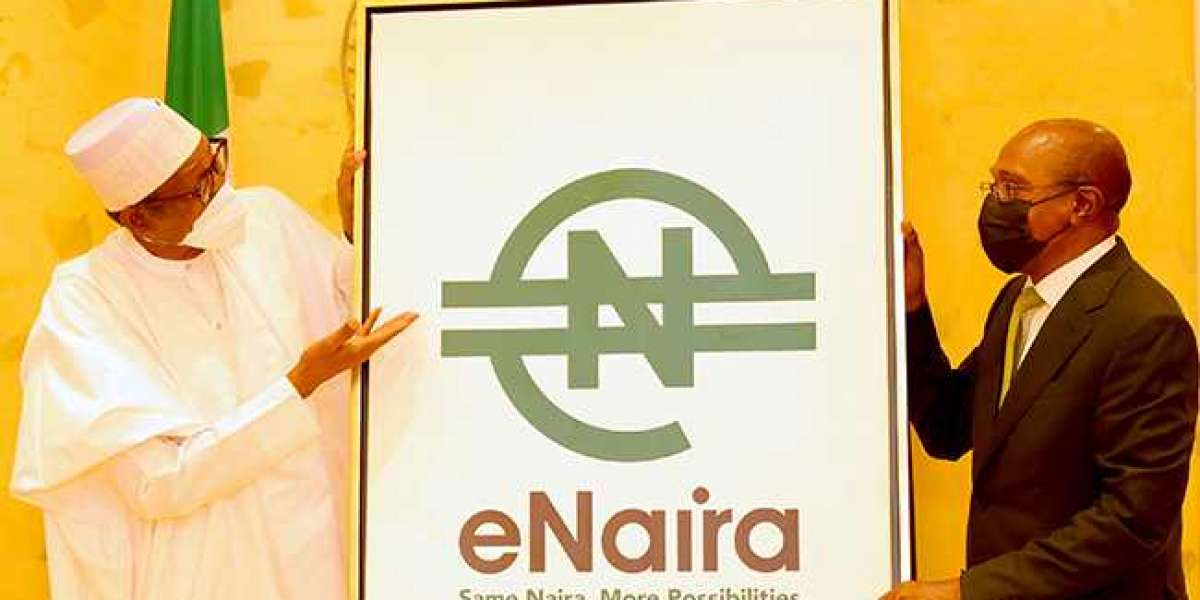This is just as the eNaira speed wallet disappeared from the Google Play Store on Wednesday after over 100,000 users had downloaded it.
The development came about 48 hours after the eNaira app was launched by the President, Major General Muhammadu Buhari, at the State House, Abuja.
Vice President Yemi Osinbajo; the Governor of the CBN, Mr. Godwin Emefiele, and top officials of the Federal Government were in attendance.
In his address, the President said the e-currency would help increase remittances, foster cross-border trade, improve financial inclusion, make monetary policy more effective, and enable the government to send direct payments to citizens eligible for specific welfare programmes.
According to him, the digital currency will help move many more people and businesses from the informal into the formal sector, thereby increasing the country’s tax base.
On Tuesday, over 100,000 downloads were recorded on the eNaira app amid negative reviews and low rating.

On Wednesday, barely about 48 hours after the launch, the eNaira wallet was removed from the Google Play Store.
The spokesperson for the CBN, Mr. Osita Nwanisobi, said the development was to enable the app to be upgraded.
“There is an upgrade going at the moment by Google; try in the next few hours,” Nwanisobi told one of our correspondents on Wednesday when asked to explain why the app could not be found on the play store.
We won’t bear liability for losses caused by e-currency website, CBN warns
On the CBN’s eNaira website, www.enaira.gov.ng, the apex bank warned users that it would not be held liable for the loss or corruption of data.
The limitation of liability read, “In no event will the CBN or its directors, officers, employees, independent contractors, affiliates or agents, or any of its or their respective service providers, be liable to you or any third party for any use, interruption, delay or inability to use the eNaira website, lost revenues or profits, delays, interruption or loss of services, business or goodwill, loss or corruption of data, loss resulting from system or system service failure, malfunction or shutdown, failure to accurately transfer, read or transmit information, failure to update or provide correct information, system incompatibility or provision of incorrect compatibility information or breaches in system security, or for any consequential, incidental, indirect, exemplary, special or punitive damages, whether arising out of or in connection with the use of the eNaira website.”
Speaking with The PUNCH on Wednesday, Lagos-based lawyer, Inibehe Effiong, said the CBN’s attempt to shift liability was illegal.
Effiong said, “The limitation of liability clause is obnoxious and unnecessarily draconian. The manner in which it is drafted is suggestive of the fact that the CBN has no confidence in the durability, credibility and reliability of the eNaira website. If commercial banks are to be held liable for losses incurred by their customers, there’s no reason by the CBN should be accorded absolute exemption from liability.
“Part of the problem with the eNaira is that the role of the CBN is conflicted. The CBN is established primarily as a regulatory agency with limited allowance for commercial particularly governmental and intergovernmental transactions.
“Since the eNaira is a product of the CBN and not essential controlled by commercial institutions, the CBN should bear some form of responsibility for the use of the eNaira platform.”
Meanwhile, our correspondent observed that although the eNaira speed wallet had disappeared from the Google Play Store, the eNaira merchant wallet, which is designed for businesses, was still running as of 9pm on Wednesday and had over 10,000 downloads.
Read Also
Checks on the Apple App Store showed that the eNaira speed wallet was still active but had been upgraded.
To access the eNaira, users have to download the ‘speed wallet’, which allows them to conduct transactions with speed and ease. It is a digital storage that holds the eNaira and is held and managed on a distributed ledger.
Before it disappeared, the speed wallet had a rating of 2.0 from 2, 150 reviews as of Tuesday evening with many complaining of glitches.
A mobile developer said an app could be missing on the store for a myriad of reasons. According to the developer, it could be because the app has flouted one of Google’s policies or because the developers took it down.
The developer said, “If the developers removed it, it could be that the app was not functioning as expected or they realised it was violating a google policy. If it was Google that removed it, it is either they were reported or/and violated a policy.”
When asked if Google could upgrade an app, the developer said, “No, they can only give guidelines. Except Google was the one that developed it.”
Meanwhile, the CBN has warned Nigerians to beware of some fraudulent individuals using a twitter handle, @enaira_cbdc purported to belong to the bank to spread false information.
The apex bank, in a statement on Wednesday, explained that the impostor handle was posting messages related to the eNaira with the intent of wooing unsuspecting Nigerians with claims that the CBN was disbursing the sum of N50bn eNaira.
The statement was titled, “Beware of fraudsters, fake eNaira social media handles”
It read in part, “Following the formal launch of the eNaira on Monday, October 25, 2021, the attention of the CBN has been drawn to criminal and illegal activities of some individuals and a fraudulent twitter handle, @enaira_cbdc purported to belong to the Bank.
“The impostor handle and fraudulent persons have been posting messages related to the eNaira with the intent of wooing unsuspecting Nigerians with claims that the Central Bank of Nigeria, among other falsities, is disbursing the sum of 50bn eNaira currency.
“These impostors are bent on defrauding innocent and unsuspecting members of the public through the links attached to their messages for application to obtain eNaira wallets and become beneficiaries of the said 50bn eNaira currency.”
To this end, the bank warned members of the public to be wary of fraudsters attempting to take advantage of unsuspecting Nigerians.
